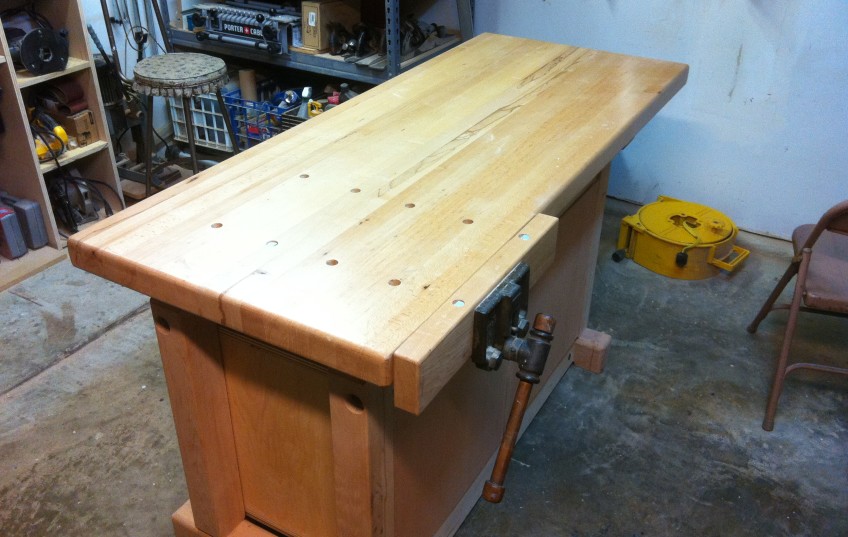Every time I finish a woodworking project, I feel an overwhelming compulsion to clean my shop. The accumulated dust and debris and clutter has become almost overwhelming and I absolutely must clear it all out rightnowthisveryminutebeforeIgonuts. I blame both of my parents for this: my dad is a neat freak and my mother is, by temperament, the opposite of that. In a stroke of comic genius, God gave me both traits simultaneously. So while I’m working, I make this explosion of mess in the shop. Tools are hanging from the rafters, sawdust is knee-high, lumber is leaning against every wall. The longer the project goes, the greater the mess, and the greater my grumpiness. Until finally, there’s catharsis and purging, the sweet relief of organizing and sweeping and putting away. Then, when everything is buttoned up and tidy, I can survey the shop with satisfaction, a half-smile on my face, and prepare for the next project.
So what’s going on with that? For me, I don’t think it’s a control thing. I think it’s more about needing to start with a blank, clean sheet of paper. Clear out the old and start fresh each time.
That idea of starting fresh is a powerful one, and an ancient one. In Judaism, there’s Yom Kippur, the Holy Day on which one’s slate is wiped clean. For that day, at least, you are starting anew, with the hope of a fresh start. There’s also Lamentations 3:21-23 in the Old Testament, offering a clean slate each day:

